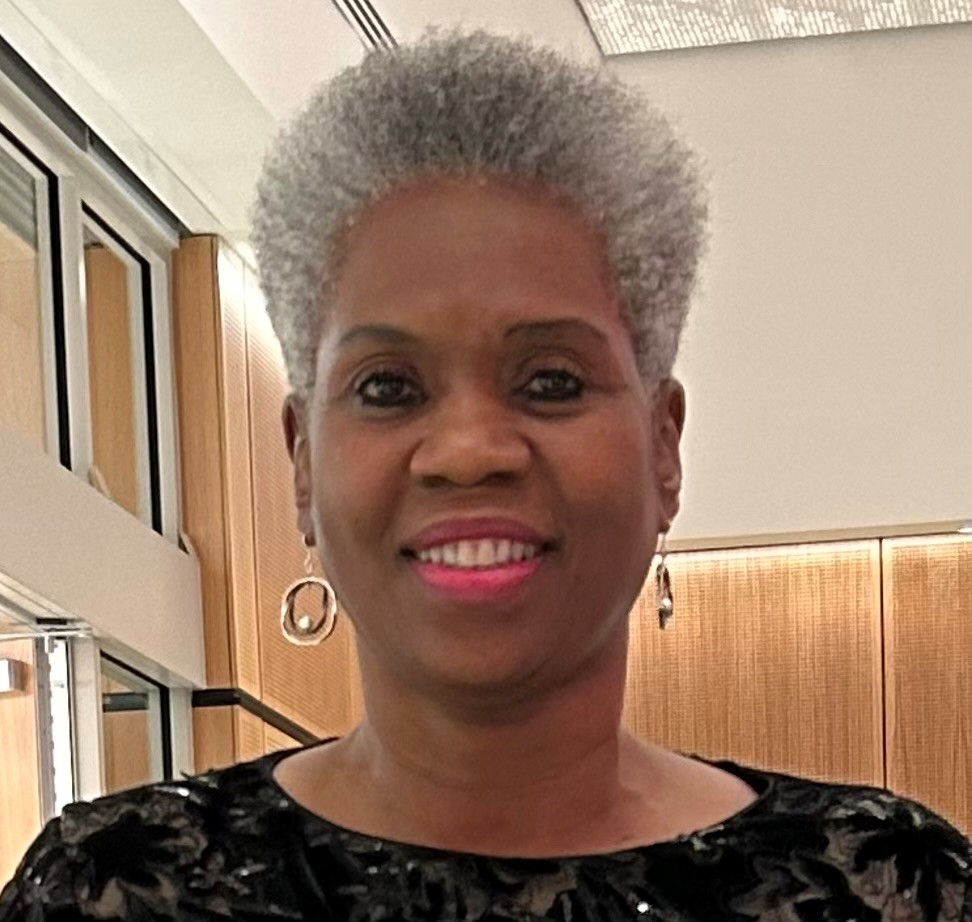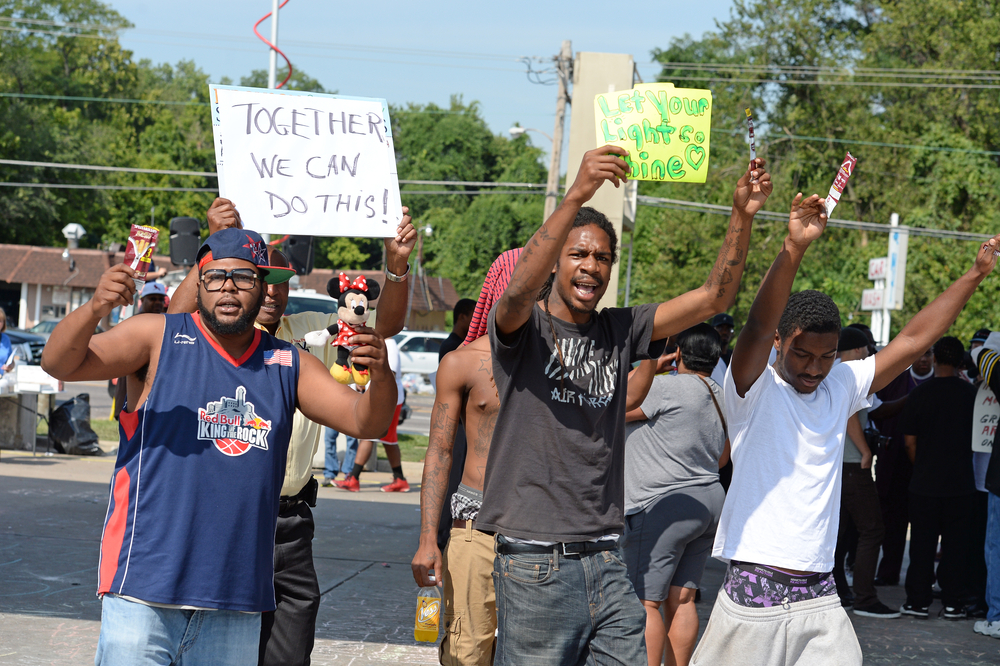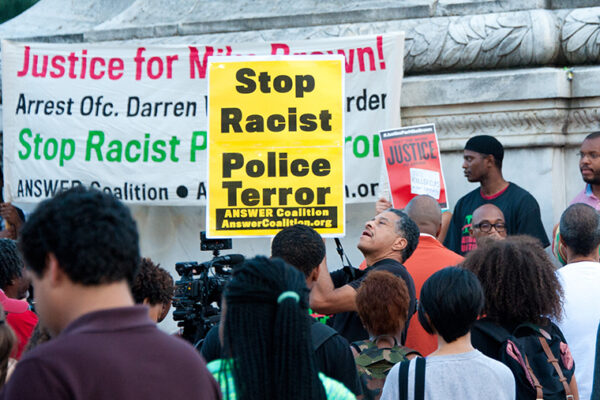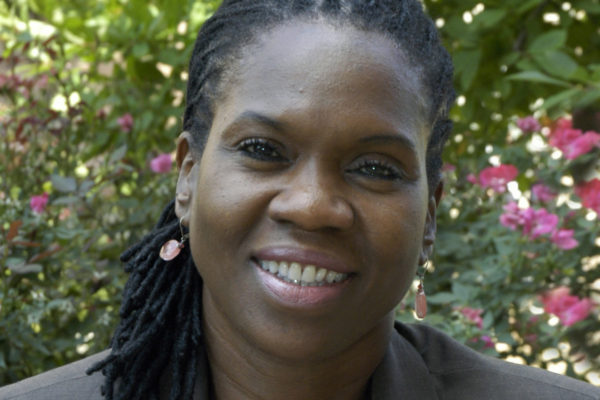While some some progress has been made in the 10 years since Michael Brown’s death on Aug. 9, 2014, in many ways we have regressed as a nation, said Kimberly Norwood, the Henry H. Oberschelp Professor of Law at Washington University in St. Louis and editor of, and contributor to, the 2016 book “Ferguson’s Fault Lines: The Race Quake That Rocked a Nation.”

The reverberations from Brown’s shooting death manifested in the form of worldwide protests and contrite promises of investigations, reform and racial reckoning, Norwood said.
“Admittedly, some progress has been made,” said Norwood, an expert on social justice and civil rights issues.
“Body cameras were employed nationally. Predatory policing on poor communities to finance municipal government with the overuse of traffic tickets and debtor prisons was exposed nationwide. States, including Missouri, changed their laws to curtail such abuses.”
“In the St. Louis County metropolitan area, a then-progressive Black lawyer unseated the longtime white incumbent prosecutor to become the first elected Black prosecutor in St. Louis County history,” Norwood said. “A Black mayor was elected for the first time in Ferguson’s history. A federal district court appointed a monitoring team to oversee the overhaul of Ferguson’s municipal court and police systems. That monitoring team, on which I serve, is still monitoring the city’s efforts and progress.”
Yet, Norwood said, we also have regressed as a nation since Brown’s death — and that regression has no end in sight.
“Every single obstacle that we explored in ‘Ferguson’s Fault Lines’ remains today, and in many cases, has gotten worse,” she said.
‘Have we made progress? Yes, but the regression is real and threatens to deepen. The work of lasting and meaningful reform is far from over. The struggle continues.’
Kimberly Norwood
“Unarmed Black people continued to be shot by police. Sonya Massey, the unarmed 36-year-old mother of two who called police for her protection, was shot in the face and killed by the officer dispatched to protect her. The media continues to frame crime and criminals with Black faces; Black people remain more likely to be unhoused, unemployed, underemployed, impoverished and lack access to and/or experience inadequate health care.”
Black people are also dying younger and suffer from higher mortality rates than white people, she said. And voting suppression laws are at an all-time high.
“This regression has even manifested in public education,” Norwood said.
“Consider the concerted efforts, under the smoke screen of ‘school choice,’ to suffocate public schools. Vouchers are a notable example. Vouchers were allegedly designed to help impoverished parents move their children out of underperforming schools and into higher-performing schools. Ironically, most impoverished people cannot take advantage of the vouchers, and unused monies are then made available to others, like parents who can afford expensive private schools. Some states no longer pretend to limit vouchers to the needy but allow all parents, regardless of income, to apply for and receive vouchers. This becomes a subsidy for those of means.”
“Renowned lawyer, author, civil rights advocate and law professor Bryan Stevenson once said, ‘Slavery didn’t end in 1865; it just evolved.’ We remain in that never-ending evolution today,” Norwood said.



